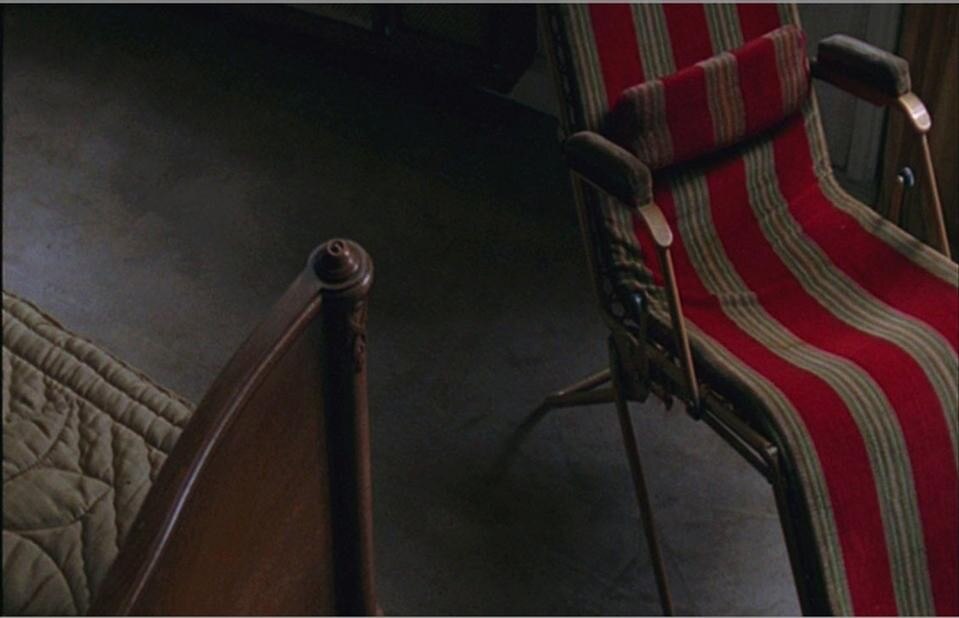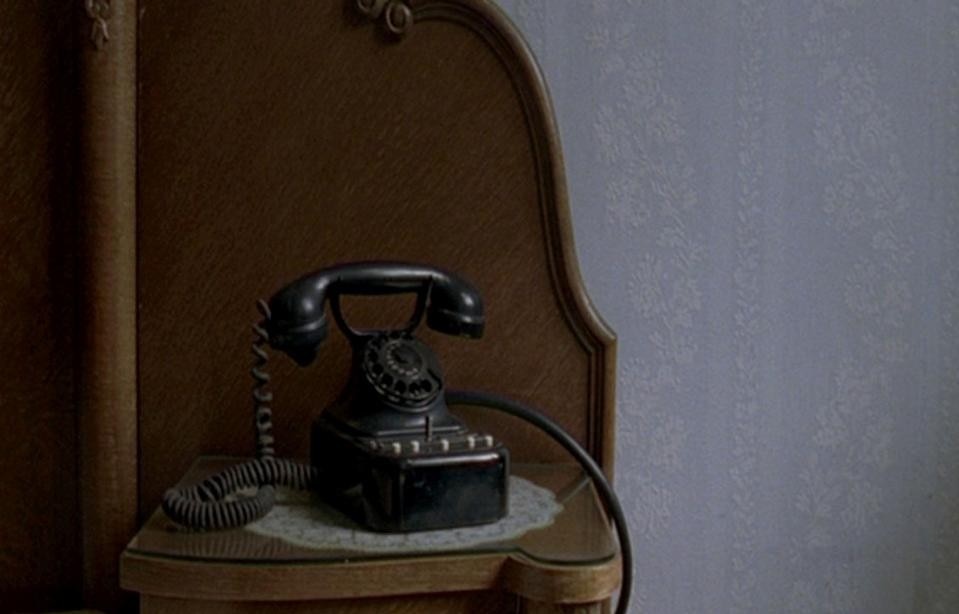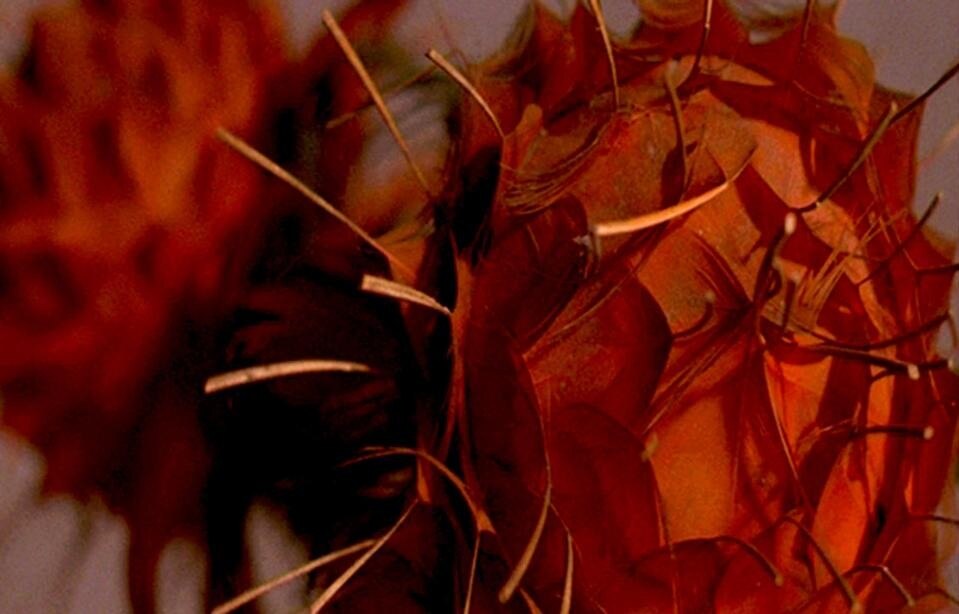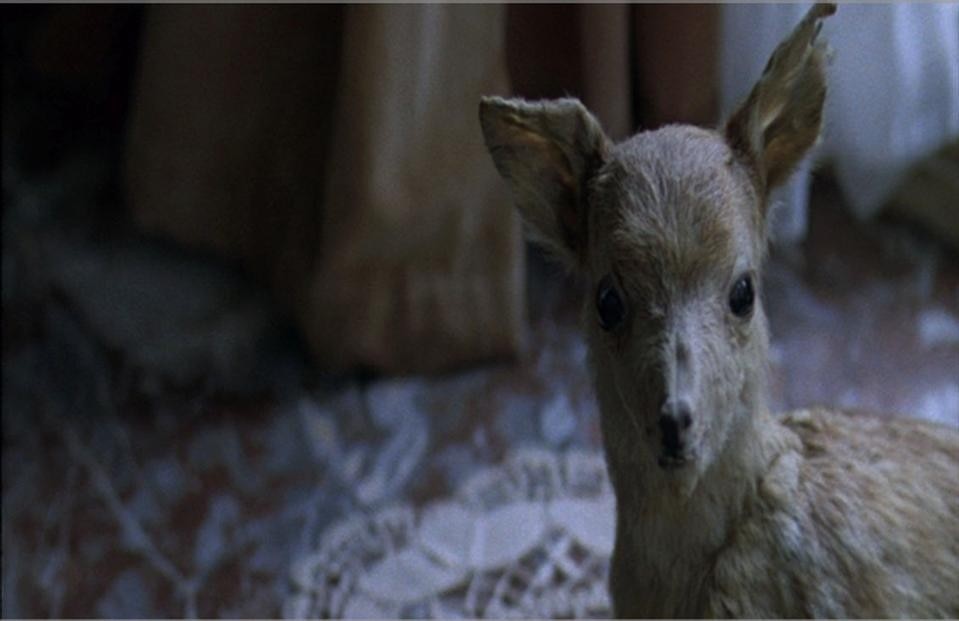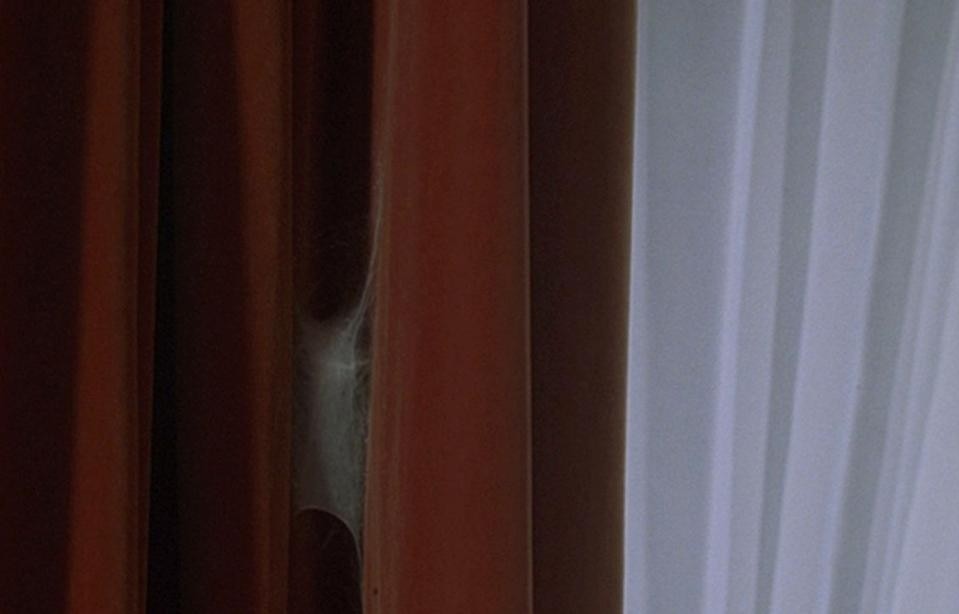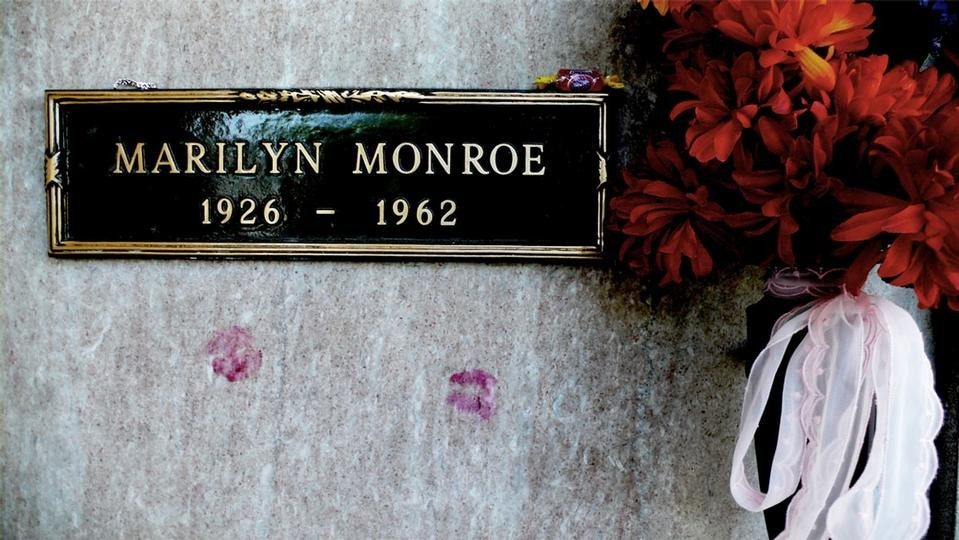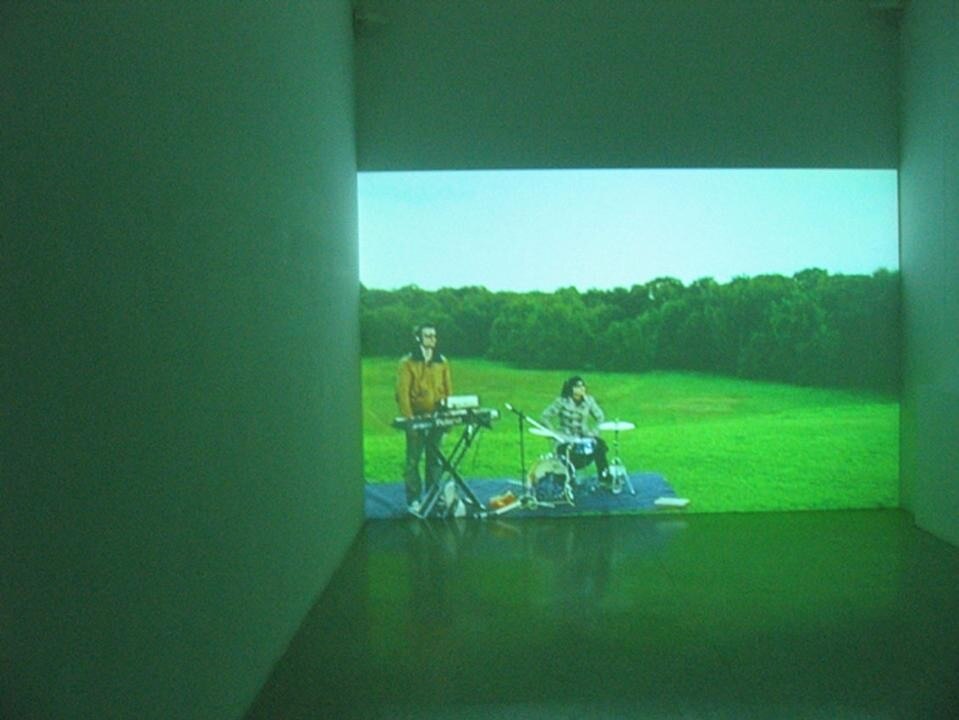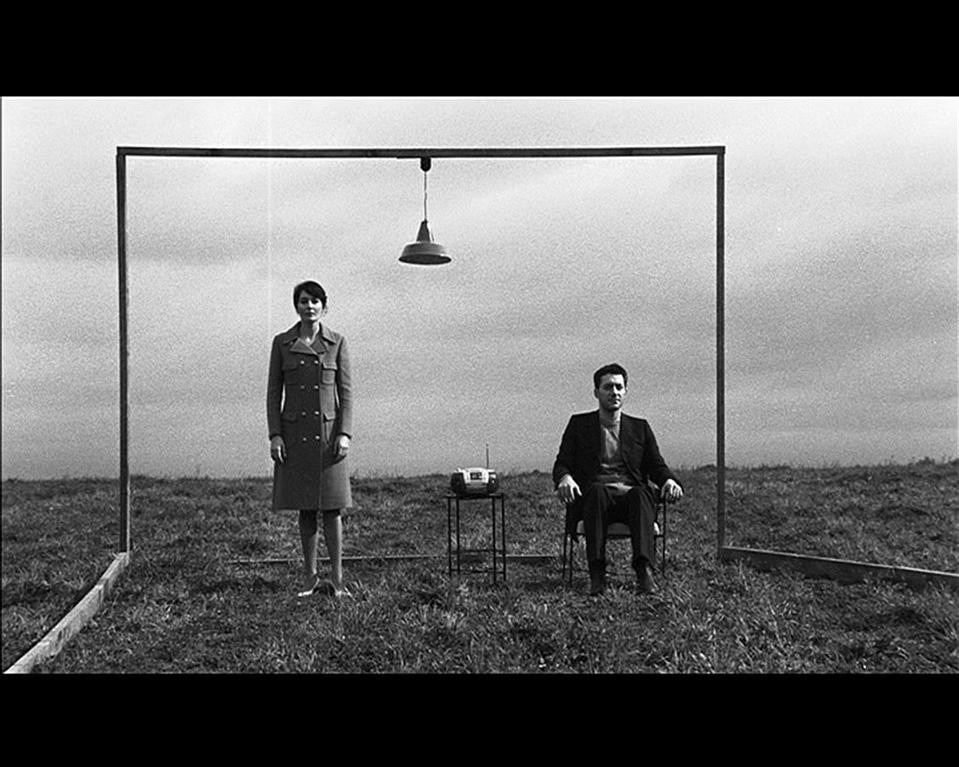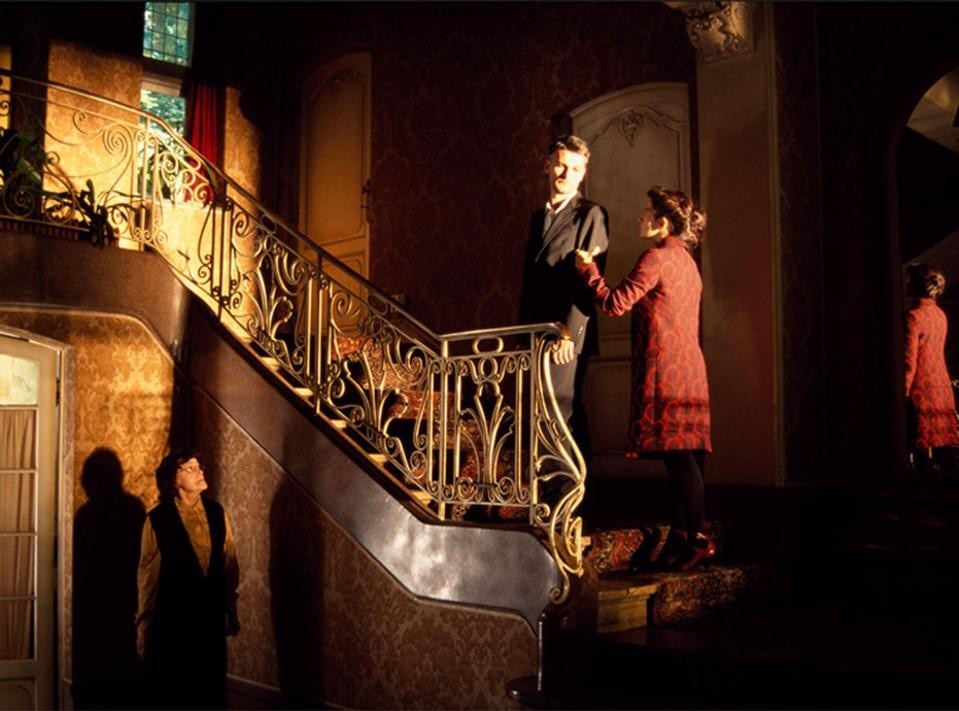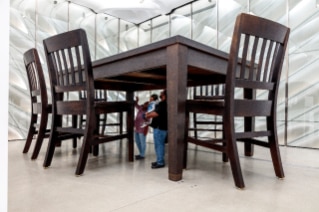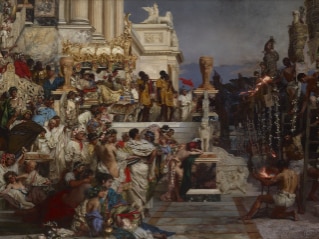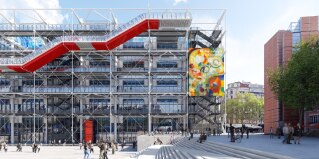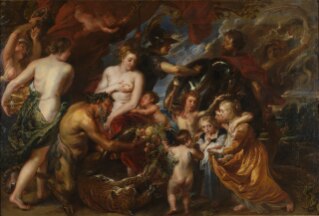Produced by the Belgian foundation FLACC (www.flacc.info), August 2008 was conceived as a living tableau based on an image that was initially created in the mind of the artist and then inspired to take further shape by a scene from the film The Lost Weekend (1945) by Billy Wilder. Filmed in a fin de siècle villa immersed in the Belgian countryside, it sees a splendid Maja Sansa and Marco Remiddi (who, together with the artist, wrote the music for the film), “young, attractive examples of the kind of young couple used in advertising” – as Stefano Chiodi defines them in the critical essay that accompanies the exhibition – immobile on a staircase, under the silent eye of an old woman who scrutinises them from below, singing a series of headlines taken from the BBC from August 2008. In the simultaneous existence of two separate historical moments, like ventriloquists of the future the protagonists are frozen in a dusty, bourgeois interior filled with heavy furniture, brocades and stuffed animals that take us back to 1940, while the grain of the video is contemporary, as are the epoch-making events that the two recite, referring to last summer with the energy crisis in Georgia, Michael Phelps’s eight medals at the Olympics, the forty-five dead in the air disaster in Madrid.
As Chiodi points out, “an aim to assess new possibilities for exploring the symbolic dimension, extracting the substance of desire and the Lacanian ‘logic of lack’ that underlies it” recurs in the work of Rä di Martino. Formal expedients to aggravate and highlight the fracture between reality and word, between context and response are found in some of her past videos, in the wide, almost 360°, shots of Not360 (2002) that capture people arguing, exchanging remarks without logic, and in the poetic La camera (2006), a living tableau in which the actors, inscribed in a frame that acts as a stage, sterilely repeat the phrases they hear on their headphones. Giulia Guzzini
